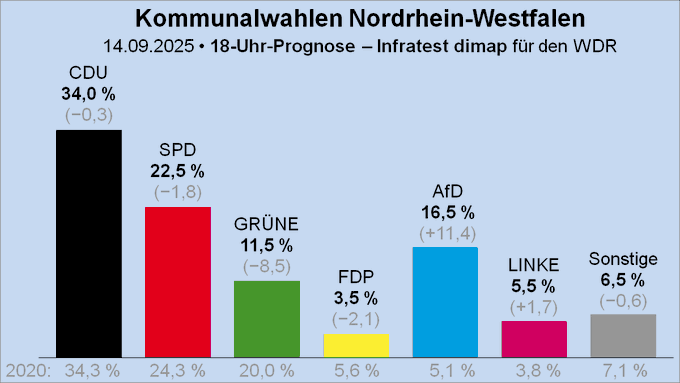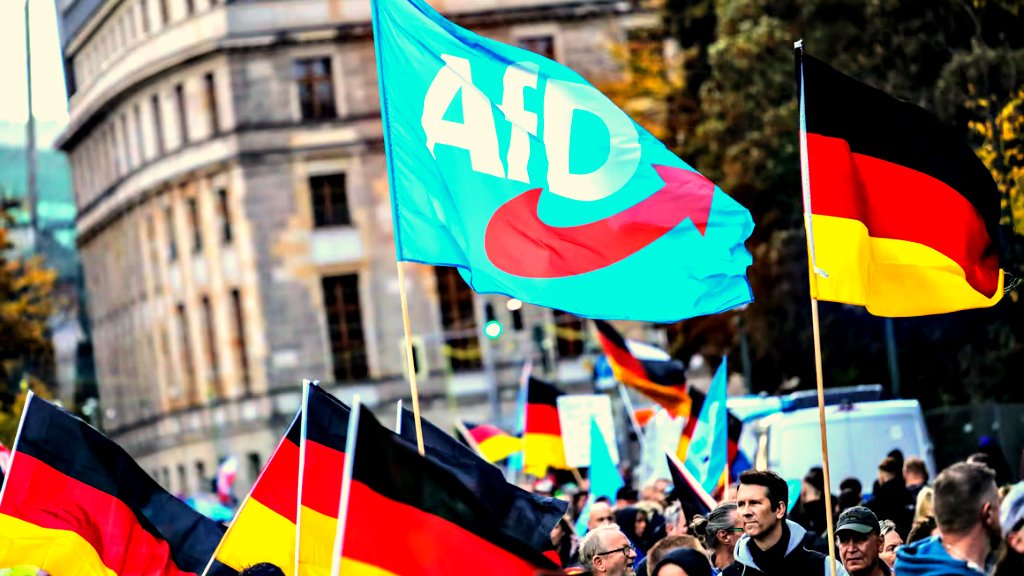AfD is strongest in Eastern Germany, but it’s a force to be reckoned with in the Western states, too.
The results of the regional elections in North Rhine-Westphalia (NRW) have shown how the rightwing Alternative for Germany party (AfD) has become a major player in German politics.
While failing Chancellor Friedrich Merz’s CDU party finished ahead in the municipal polls in NRW, even the mainstream media has had to admit that the biggest winner is the AfD, which nearly tripled its voting compared with five years ago.
This was the first test of Merz’s new coalition – and he flunked it.
Reuters reported:
“Initial forecasts from pollster infratest dimap for broadcaster ARD after voting ended for councils, districts and mayors in the western state of North Rhine-Westphalia showed support for the Alternative for Germany (AfD) party had more than tripled to 16.5% from 2020.
Merz’s conservatives remained the strongest party, scoring 34% of the vote, roughly the same level as five years ago. The Social Democrats (SPD) slipped to 22.5% from 24.3%, according to infratest dimap.
‘I am looking at the AfD’s results with great concern. This should give us pause for thought because this is a path that is emerging, and we democrats must counter it’, Olaf Lies, SPD premier of the state of Lower Saxony told ARD television.”

The state of North Rhine-Westphalia has a quarter of Germany’s population, and AfD’s growth there impacts the national numbers.
“A weekend INSA poll on Sunday put Merz’s conservatives down 1 point and level with the AfD on 25% nationally while the SPD trailed in third place at 14%.
‘This is a great success for us’, said AfD co-leader Tino Chrupalla on social media platform X. ‘We are a people’s party and we all bear a great responsibility for Germany’.”
Associated Press reported:
“AfD’s rise has been fueled by discontent over large numbers of migrants but also other issues, including a stagnant economy and the war in Ukraine. Its support has remained high despite Germany’s domestic intelligence agency classifying it as a right-wing extremist organization, a designation that it suspended after AfD launched a legal challenge.
[…] In three of the less prosperous cities in the industrial Ruhr region, AfD mayoral candidates garnered enough support to advance to runoff votes on Sept. 28 against candidates from mainstream parties. AfD contenders will face Social Democrats in Gelsenkirchen and Duisburg, and a Christian Democrat in Hagen.”
Unsurprisingly, the biggest losers in terms of support were the climate change worshippers, left-leaning Greens, who fell to 13.5% from 20% in 2020.
Read more:
THE RIGHT STUFF: With German AfD Party Topping Opinion Poll for the First Time, Now Right-Wingers Lead Voter Preference in the UK, France and Germany in Historic Shift
Read the full article here


